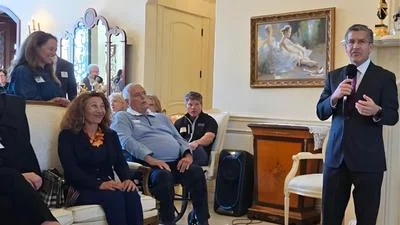Toni Preckwrinkle has announced that small businesses, nonprofits and gig workers will be the first to receive funding. | Toni Preckwrinkle/Facebook
Toni Preckwrinkle has announced that small businesses, nonprofits and gig workers will be the first to receive funding. | Toni Preckwrinkle/Facebook
Local businesses, nonprofits and contract workers will be able to access part of a $2.2 trillion federal stimulus package first, Cook County Board President Toni Preckwinkle announced.
“We’re doing everything we can in Cook County to ensure that businesses, nonprofits and gig workers survive this crisis and thrive when it’s finally over,” Preckwinkle said at a press conference and was reported on by the Chicago Tribune.
This means giving them access to applications for the federal stimulus package first. All funds will be distributed on a first-come, first-served basis and the county will help those in need with the application process.
“Cook County would be nothing without our restaurants, our mom-and-pop stores and most importantly our workers,” Preckwinkle said at a news conference.
The package has set aside $377 billion to specifically help small businesses, nonprofits and independent gig workers, the Chicago Tribune reported. This will help many workers out of a job be put back on the payroll.
“We hope this can provide some breathing room for businesses that are struggling. We recognize that you are worried about rent, about payroll, about mounting bills,” Preckwinkle said at the conference. “You should not be worried that the tax collector is coming after you as well.”
Rebecca Shi, executive director of the American Business Immigration Coalition, told the Chicago Tribune she wants small businesses in Cook County to be first in line for the funding.
“There’s going to be companies that have chief counsels and accounting firms ... that tomorrow morning, when those application becomes live, (will be) ready to hit the send button. And there are people like our small business owners and minority business owners that may be left behind,” Shi told the Chicago Tribune. “Three hundred seventy-seven billion seems like it’s a lot, but this money will go quickly."
A webinar will be held to help answer questions, Preckwinkle said. A website will also be set up for questions.






 Alerts Sign-up
Alerts Sign-up